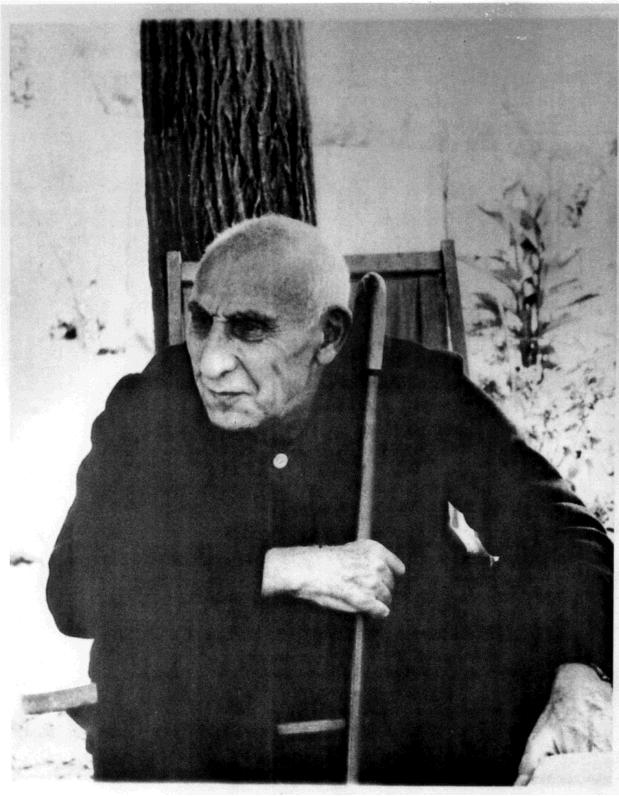
September 06-13
The Majlis approved legislation Sunday to sue the United States and Britain for mounting the 1953 coup against Prime Minister Moham-mad Mossadegh.
The first article of the new statute orders the government to form a committee to calculate the damages done to Iran by the coup so as to form a basis for a financial suit against the United States and Britain.
The second article requires the government to file a suit, although it doesn’t say what court it believes Iran can go to.
The bill passed after four days of debate heavily filled with anti-American rhetoric.
Only a handful of legislators opposed the legislation. Deputy Mohammad-Mahdi Rahbani said it was silly and would accomplish nothing. “Pursuing this bill holds no benefits for our country,” he said. “It only wastes the time of the Majlis.”
Deputy Foreign Minister Hassan Qashqavi, meanwhile, said the Majlis had already passed such a bill in 1999 and the Foreign Ministry had hired a law firm that submitted the case to the International Court of Justice (ICJ) in The Hague. He complained of inaction by the ICJ, commonly called the World Court.
But the ICJ’s docket list on the Internet shows no such case has been filed.
International law experts generally agree with the bill’s critics.
Diane Marie Amann, an international law expert at the University Of Georgia School Of Law, told Radio Farda the ICJ is the court that hears lawsuits brought by countries against one another.
But she said it is very unlikely Iran would get anywhere at the ICJ. “In order to maintain a lawsuit in that court, both of the countries at issue have to belong to a preexisting international agreement by which they say, ‘If we have a dispute with each other, we will go to this court,’” Amann says. “And the likelihood of Iran finding an agreement like that—that was in effect in 1953 and remains in effect today—is rather slim.”
Even if Iran were to find a venue in which to sue the United States and the United States agreed to go to court, it would be a challenge for the Islamic Republic to prove that US actions and its involvement in the 1953 coup were illegal.
Ruth Wedgwood, head of the international law program at Johns Hopkins School of Advanced International Studies in Washington, told Radio Farda the Islamic Republic’s argument would be difficult to prove.
“I think the UN Charter contemplates that countries, in general, will mind their own business in the sense that there’s a right to national self-governance, self-determination, you can’t invade another country willy-nilly,” Wedgwood says. “But whether any kind of participation in political change in another country is forbidden, that’s a very tall order. Countries try to influence the evolution of events in other states all the time, whether it’s by giving money or sharing opinions or engaging in public expression of support for one regime and castigation of another regime.”
According to Paul Dubinsky, professor of international law and director of graduate studies at Wayne State University Law School in Michigan and vice president of the American Branch of the International Law Association, Iran wants to have it both ways.
“It wants to assume its immunity under treaties, statutes, and customary international laws, but what it is seeking to do is pierce United States’ immunity. And that’s going to be very difficult to do,” he said.
The Islamic Republic tries that all the time. It repeatedly complains that US complaints that Iran violates human rights standards are an illegal interference in Iranian domestic affairs. But, at the same time, the Islamic Republic accuses the United States of violating human rights standards, especially by its treatment of blacks and Indians.
Dubinsky said there is a long and complicated legal history between Iran and the United States. “That legal history includes litigations surrounding the hostages in the 1970s and surrounding certain actions by Hezbollah and other Iranian-backed groups in the 1980s and ’90s,” he said. “Iran has always asserted its sovereign immunity against those suits to defend it.”
The Islamic Republic refuses to go into US courts to defend itself against the dozens of suits that have been filed against it by American victims of terrorism. It has said for decades that as a nation state, it cannot be sued. But now it says it can sue another nation state.


















